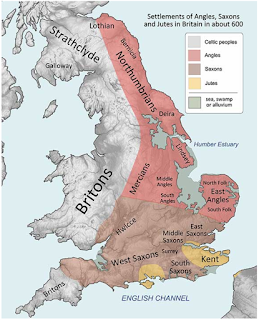I've written before on the blog about the recent advent of "readable history," of "narrative non-fiction." Most of my posts on books like this have been negative: left in the hands of generalists or journalists, history tends to be presented as a thematic struggle. Often, though, these themes are so general that the history itself -- the details, the dates -- become obscured, and the result is a book which cannot, frankly, be trusted.
This is not the case, I should say, for Robin Fleming's excellent treatment of Britain from the fall of the Roman Empire through the arrival of the Normans. Britain After Rome is a learned analysis of the economic impact of Roman's collapse: Fleming uses archaeology, anthropology, and material culture to explore this cataclysm. Because in the end, that's what it is: in some places in Britain, it would take as much as 1,500 years for levels of trade and commerce to reach the levels seen under Rome.
Britain After Rome is an engaging read -- and not only for those interested in the British Isles. This is a book, really, about what happens in the absence of empire: of what happens when towns and cities collapse, and when the force keeping them all together -- Rome -- collapses as well. I found Fleming's treatment of the fifth century particularly gripping: here were Britons encountering a completely new reality: one which remained Roman by custom, but whose political and economic inertia had come a complete halt.
This is history as it should be written.


No comments:
Post a Comment